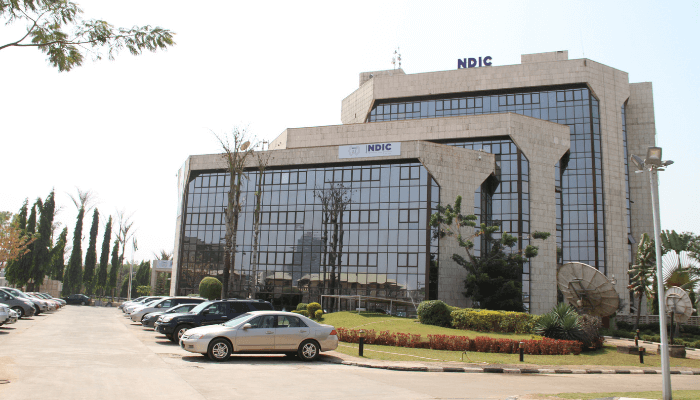In a significant move for Nigeria’s financial sector, the Senate has passed the Nigeria Deposit Insurance Corporation (NDIC) Amendment Bill, 2024, which introduces sweeping reforms aimed at enhancing depositor protection, strengthening the NDIC’s autonomy, and aligning it with international best practices. The bill, championed by Senator Adetokunbo Abiru, Chairman of the Senate Committee on Banking, Insurance and Other Financial Institutions, received a third reading and was passed by a majority vote, reflecting consensus on the need for a fortified deposit insurance framework.
The NDIC Act No. 33 of 2023, while a considerable improvement on the 2006 Act, has been met with challenges and calls for reform from both policymakers and stakeholders, prompting the senate’s push for further amendment. Abiru explained that the amendments would enhance the NDIC’s capacity to secure depositors, foster stability in financial institutions, and bolster trust within Nigeria’s banking system.
A notable change is the revision of Section 7, which restores the President’s authority to appoint NDIC’s managing directors and board members, a shift from previous requirements that relied on recommendations from the Central Bank of Nigeria (CBN). This amendment underscores the President’s constitutional powers while securing a clearer governance structure within the NDIC. Additionally, the provision requires Senate confirmation for these appointments, reinforcing transparency and oversight.
The bill also aims to address operational delays by mandating the establishment of an Interim Management Committee by the Finance Minister if a board vacancy exists beyond 30 days, an amendment seen as pivotal in maintaining the corporation’s operational efficiency.
The new amendment to Section 25 raises the insured deposit payout, with NDIC now mandated to compensate depositors up to ₦5 million for banks and ₦2 million for microfinance institutions in cases of licence revocation. This substantial increase, up from ₦200,000, reflects economic realities and provides a robust safety net for depositors, signalling a stronger commitment to financial stability and public confidence in the banking sector.
Further reforms address the evolving risks associated with digital finance. With financial transactions increasingly moving online, Section 44 of the NDIC Act is recommended to undergo a review, explicitly including provisions for cybersecurity insurance. This amendment would modernise the NDIC’s legal constructs, offering comprehensive depositor protection by recognising the realities of the digital finance ecosystem.
The bill also revisits Section 22, which mandates deposit insurance on all licensed institutions. Under the current structure, banks pay insurance premiums on total deposits, including those held as cash reserve ratio (CRR) with the CBN—a regulatory burden critics argue hinders lending capacity. The proposed change advocates calculating insurance premiums only on the net deposit position, allowing banks more flexibility to extend credit, a measure intended to promote a healthier economic environment.
In line with its objective to streamline and bolster financial stability, the bill proposes a phased integration of the NDIC and the Asset Management Corporation of Nigeria (AMCON), consolidating efforts to manage bad loans and protect depositors. With AMCON’s expertise in toxic loan resolution, repurposing AMCON as a specialised NDIC arm would enhance efficiencies in handling non-performing assets. Such integration is expected to reduce redundancy and strengthen the framework for resolving distressed banks.
The NDIC Act Amendment Bill 2024 is a proactive approach to fortifying Nigeria’s deposit insurance framework. By prioritising NDIC’s independence, modernising legal provisions, adjusting regulatory parameters to foster banking sector growth, and aligning AMCON’s functions within NDIC, the Senate’s efforts mark a significant step toward safeguarding depositors and fostering a resilient financial system. As the bill proceeds for executive assent, stakeholders hope it will signal a new era of confidence and stability in Nigeria’s banking sector.





